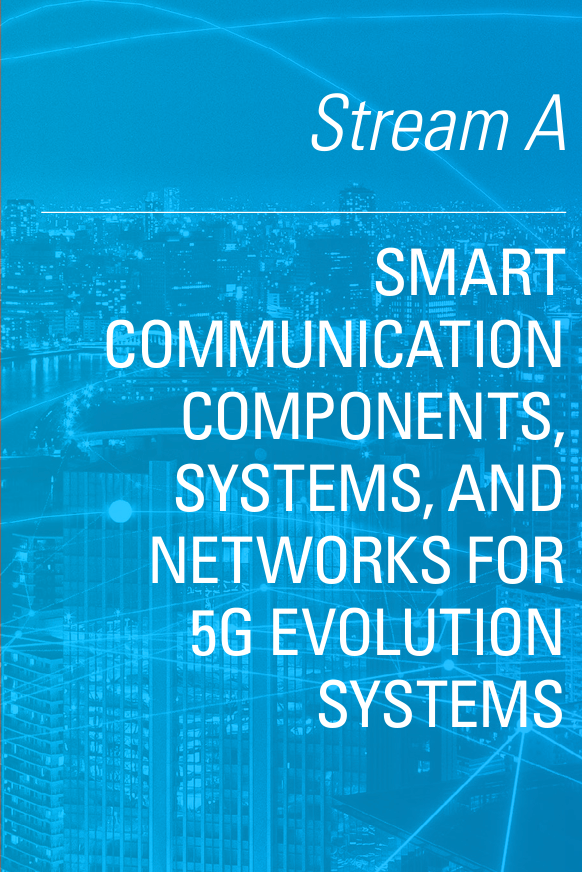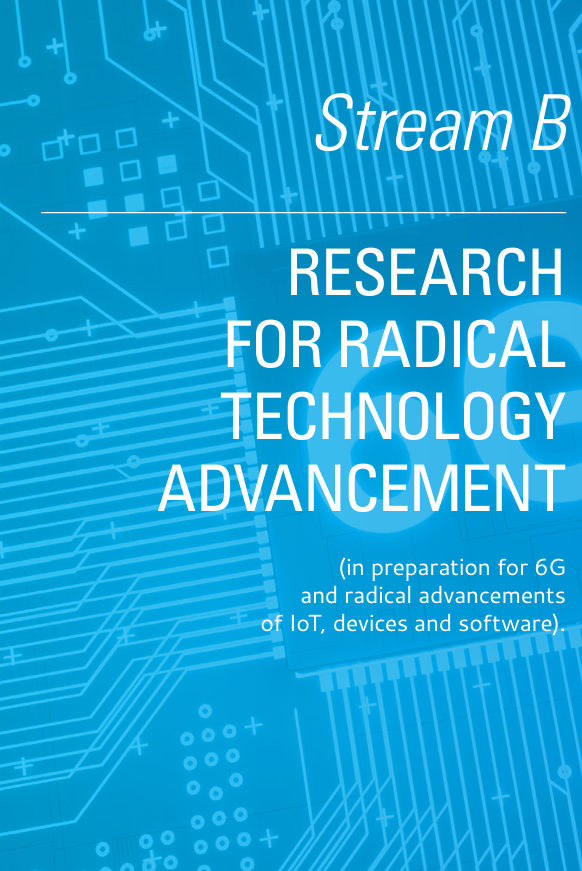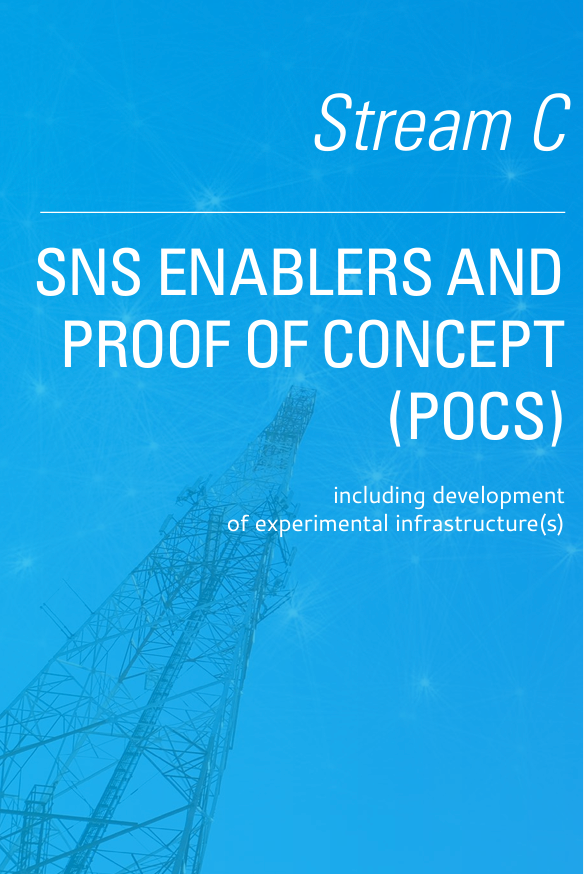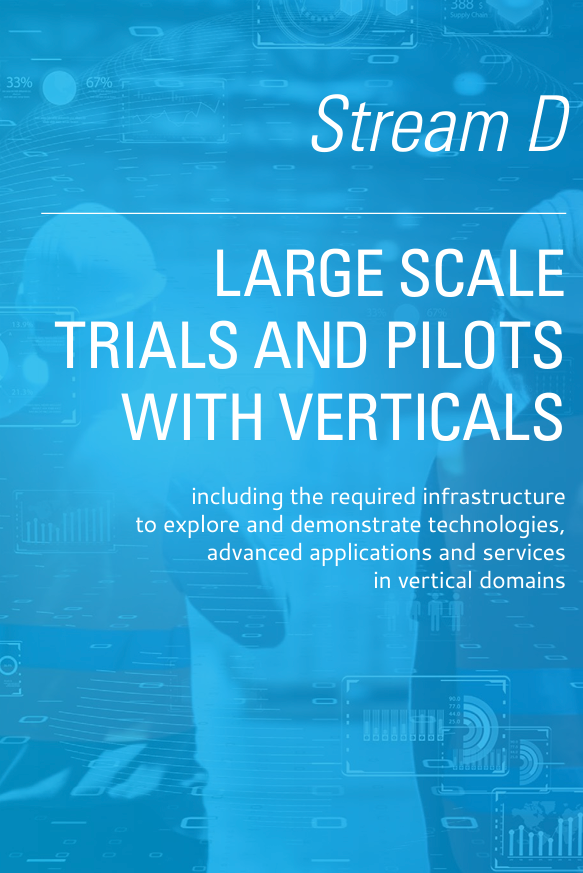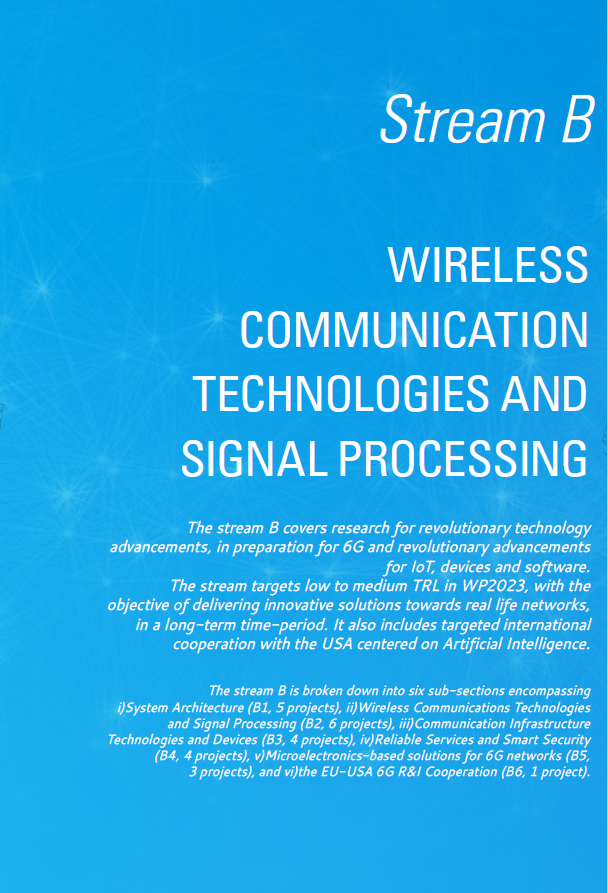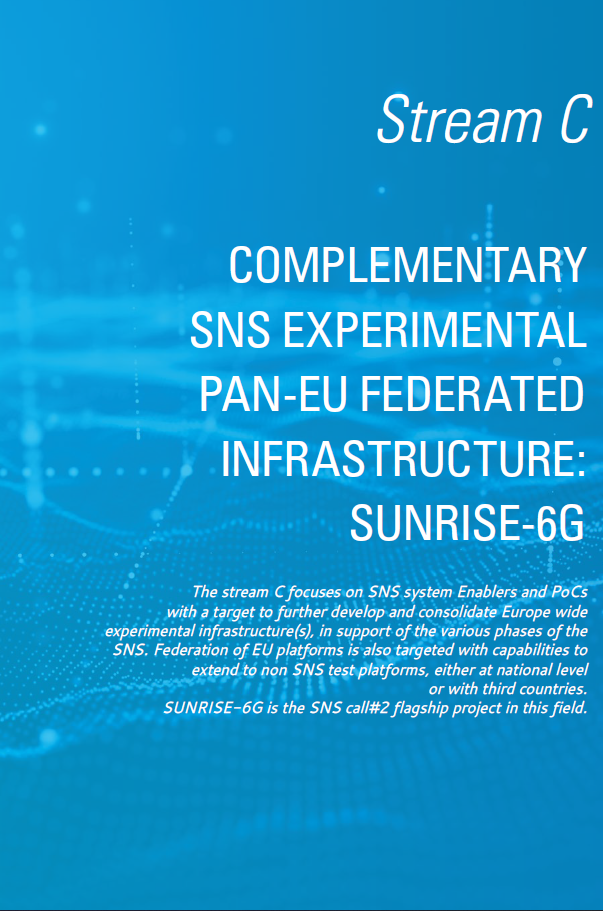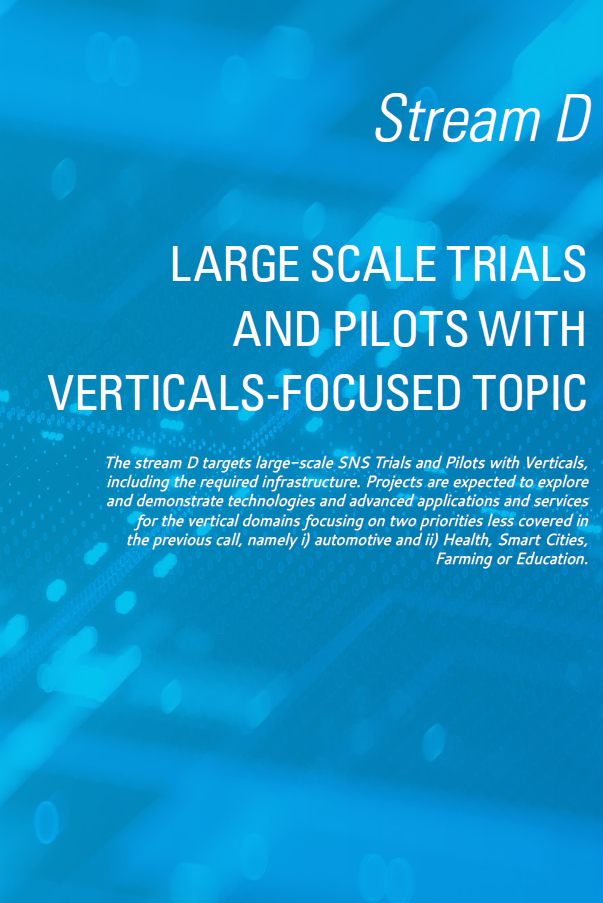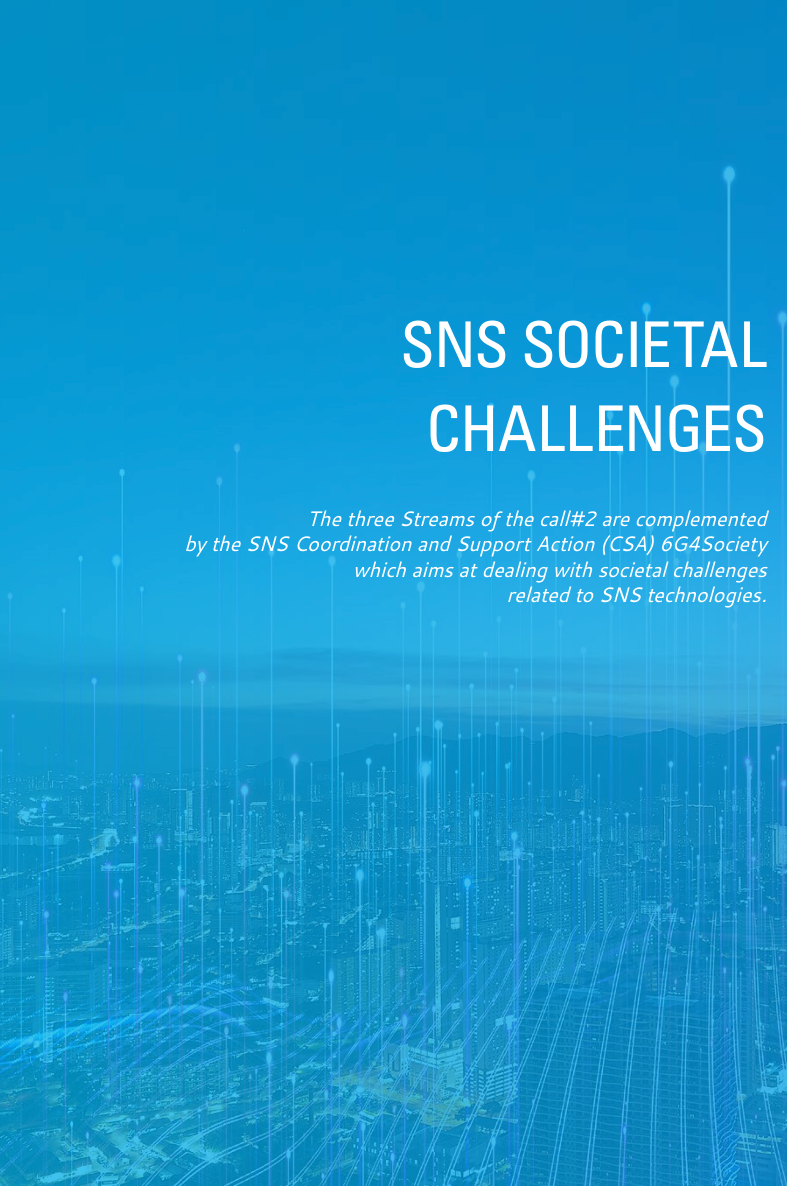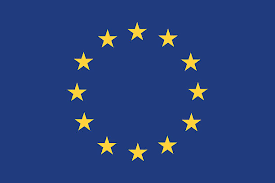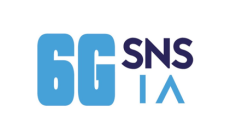In January 2024 the Smart Networks and Services Joint Undertaking (SNS JU) launched its second portfolio of 28 additional research, innovation, and trial projects for a total of 63 SNS projects (35 call 1 projects launched in January 2023 and 28 call 2 projects launched in early 2024).
All the 63 projects are critical in establishing a solid research and innovation (R&I) foundation for Europe, defining the next-generation networks.
With a combined funding of around 382 million EUR under Horizon Europe, this project portfolio aims to build a first-class European supply chain for advanced 5G systems and Europe’s 6G (6th Generation Wireless Systems) technology capacities.
The Research and Innovation (R&I) projects will develop smart communication components, systems, and networks for 6G, tracing both an evolutionary path through further enhancements of 5G advanced technology as well as a more revolutionary path by investigating the benefits of promising technological enablers. Technology validation initiatives will develop SNS experimental infrastructures and carry out large-scale SNS trials and pilots in several business and industrial vertical sectors. R&I projects will be supported by CSAs.

Foreword from the European Commission
2023 has been a year of growth for the SNS JU as the SNS JU team was strengthened by a new management team and officers, it launched the first wave of 35 projects, evaluated more than 100 proposals for call 2. It selected 28 additional research, innovation, and trial projects with a funding of around 132 million EUR under Horizon Europe. The portfolio reached 63 projects, to be completed in 2025 by call 3 projects currently under evaluation.
Erszébet Fitori,
Executive Director of the Smart Networks and Services Joint Undertaking
Introduction from the 6G-IA
As well as the total number of projects, an important aspect is the impressive participation of top European experts from varied backgrounds (industry, academia, RTOs, SMEs, etc.). This is proof of the significance of this endeavour for the European stakeholders and indicative of the impact it will potentially deliver. With 288 beneficiaries in Phase 1, another 222 beneficiaries in Call 2, and an SME participation of more than 20%, the SNS JU projects engage a broad and varied ecosystem of EU experts who have joined forces to deliver novel solutions that will realize the next generation of networks and services.
It is important to look back at the accomplishments and achievements of these projects during their 1st year. From the technological requirements analysis, use case definitions, architectural designs, to the early insights of the R&I projects. From the enlargement of the international and EU ecosystem of the SNS JU, to the monitoring and analysis of global 6G trends and innovative collaboration tools delivered by the Coordination and Support Action projects.
Colin Willcock,
Chairman of the SNS JU Governing Board
and 6G-IA Board

SNS Call 1 Projects
The 7 projects under this stream follow an evolutionary path towards the development of 6G networks. The selected projects demonstrate complementarity and have been selected in such a way as to create a complete system view.
Research topics covered include energy-efficient radio networks, adaptive Open RAN, integrated 5G-Non-Terrestrial Networks (NTN), AI-based edge platforms, and intelligent resource management ensuring security, privacy & trustworthiness.
The focus is on novel technologies that are expected to be adopted in commercial networks in a mid and/or long-term time period. Research topics considered in the 19 retained projects include, inter alia, novel 6G system architectures, advanced wireless and optical communication technologies, advances in Non Terrestrial Networks, secure development of ultra-reliable, and low-latency communications (URLLC) applications.
The 3 projects in stream C aim at developing EU-wide experimentation platforms that can incorporate promising technical 6G enablers for their further validation. Key aspects for the projects are the reusability and ability to evolve of the experimental platforms over the lifetime of the SNS programme.
Accessibility and openness with well-defined and clearly-documented technological and business interfaces are also considered key assets of the infrastructures to be developed.
4 projects are implementing large-scale SNS trials and pilots with specific verticals of high economic and societal importance. The aim is to explore and demonstrate 5G/6G technologies, advanced applications and services in vertical sectors such as energy, construction, automotive, manufacturing, eHealth, culture, and media.
Additionally, these large-scale trials aim to become the catalyst for the creation of viable business ecosystems. Stream D projects incorporate technologies that are currently key enablers for 6G networks, such as AI/ML, cybersecurity, cloud/edge and advanced IoT solutions etc.
CSAs - Coordination and Support Actions
 The SNS ICE project provides a collaborative environment for dialogue amongst European and global stakeholders involved in the SNS JU events preparation.
The SNS ICE project provides a collaborative environment for dialogue amongst European and global stakeholders involved in the SNS JU events preparation.
SNS ICE plans to achieve the objectives listed above by working towards a diverse portfolio of outcomes, including delivery of global 6G R&I trend reports and alignment analysis with the SNS 6G roadmap, evaluation of the acceptance and impact analysis of SNS Phase 1 results, evaluation of 6G collaboration in Europe and worldwide, trend analysis in vertical sectors, dissemination and promotion of SNS exploitable results and more.
SNS ICE will also target the organisation of multiple physical and virtual 6G-oriented events targeting stakeholders on a European and global level and even dedicated vertical events SNS OPS.
 The SNS OPS project support action project is devoted to supporting the operations of the 6G Smart Networks and Services Joint Undertaking (SNS JU).
The SNS OPS project support action project is devoted to supporting the operations of the 6G Smart Networks and Services Joint Undertaking (SNS JU).
The SNS OPS project will also orchestrate and organise strategic activities to capture and promote the European view on 6G, the achievements of the 6G SNS and will start the process of monitoring the development and impact of these results on the evolution of 6G in Europe over the period of life of the 6G SNS initiative. The planned work is to facilitate the activities of the European SNS Initiative, as outlined in the SNS contractual partnership.
At a strategic level, there is a close relation between the planned activities of the SNS OPS project, in terms of the expected outcomes, and the ambitions of the SNS JU.
SNS Call 2 Projects
The stream B covers research for revolutionary technology advancements, in preparation for 6G and revolutionary advancements for IoT, devices and software.
The stream targets low to medium TRL in WP2023, with the objective of delivering innovative solutions towards real life networks, in a long-term time-period. It also includes targeted international cooperation with the USA centered on Artificial Intelligence.
The stream B is broken down into six sub-sections encompassing i)System Architecture (B1, 5 projects), ii)Wireless Communications Technologies and Signal Processing (B2, 6 projects), iii)Communication Infrastructure Technologies and Devices (B3, 4 projects), iv)Reliable Services and Smart Security (B4, 4 projects), v)Microelectronics-based solutions for 6G networks (B5, 3 projects), and vi)the EU-USA 6G R&I Cooperation (B6, 1 project).
The stream C focuses on SNS system Enablers and PoCs with a target to further develop and consolidate Europe-wide experimental infrastructure(s), in support of the various phases of the SNS. Federation of EU platforms is also targeted with capabilities to extend to non-SNS test platforms, either at the national level or with third countries. SUNRISE-6G is the SNS call#2 flagship project in this field.
The stream D targets large-scale SNS Trials and Pilots with Verticals, including the required infrastructure. Projects are expected to explore and demonstrate technologies and advanced applications and services for the vertical domains focusing on two priorities less covered in the call 1, namely i) automotive and ii) Health, Smart Cities, Farming or Education.
The SNS Coordination and Support Action (CSA) 6G4Society which aims at dealing with societal challenges related to SNS technologies.


